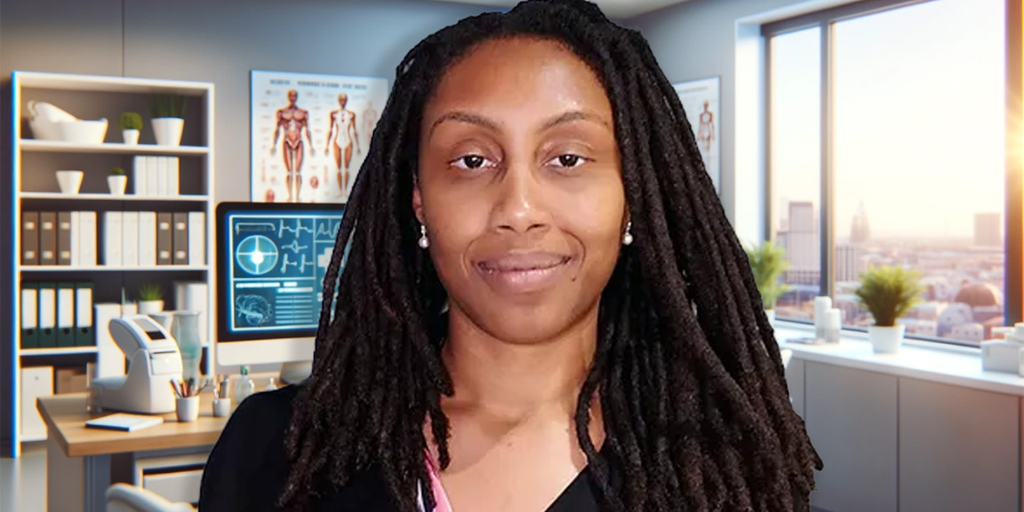‘We’re Living Longer, But We’re Living Longer, Sicker’: Rejuve CEO
1 year ago CryptoExpert
While most people immediately associate artificial intelligence with tools to write a term paper or design an art project, AI technology is also being tapped to push the boundaries of longevity and health. One company harnessing AI to produce better health outcomes is Saint Lucia-based Rejuve.
Initially launched in 2018 by SingularityNET founder and CEO Ben Goertzel, Rejuve is a biotechnology company that aims to use artificial intelligence and decentralized technology to help people live healthier lives.
“AI enables us to process data at much faster rates and [in] more intricate combinations than people just reading endless papers and everything,” Rejuve CEO Jasmine Smith told Decrypt. “Just being able to have that personalized medicine theme kind of propagates more via AI because it can analyze the data and assist clinical providers in their decision-making.”
As technology and medicine advance, the average person’s lifespan has increased, with the average life expectancy in the United States now 79 years old, up 0.08% from 2022, according to data research firm Macrotrends. But while people are living longer, it does not mean they live better lives.
“We see that even though the average life expectancies around the world have been increasing, the rates of chronic disease have been increasing at pretty much the same rate,” Smith said. “So it’s like we’re living longer, but we’re living longer, sicker,” she said, suggesting that more people are living to 90 years old but spend the last several months or years bedridden.
Living long and full lives is the goal of most humans, of course. But longevity tech tends to work best for the wealthy—people who can afford the tests, drugs, specialized foods, and treatments necessary to reverse aging. So-called “biohacking clubs” are popping up worldwide to cater to the elite.
Rejuve aims to democratize longevity with the help of the recently released Rejuve Longevity app—along with its associated digital asset token and NFTs—utilizing the Ethereum, Cardano, and BnB Chain blockchains. Smith explained that people who sign up to use the Rejuve app earn tokens in exchange for data provided and keeping their profile up to date.
“Part of what we’re doing with the [Longevity] app is being able to crowdsource data from people all over the world—so not just specific populations,” she said. “Being able to combine it in ways that are beneficial to individuals, but also at the population level, [and] discovering what’s most influencing aging and what solutions we can flatten that curve of sickness.”
Smith said the Rejuve app aims to break down complicated concepts like aging into simpler terms that are more relatable and easy to understand.
In his ongoing quest for the fountain of youth, billionaire biohacker Bryan Johnson said an essential element of living longer, healthier lives is to stop “self-destructive behavior.”
“We all have these versions inside of us where we commit this self-destructive behavior, and we do so again and again,” Johnson said in an interview with Bloomberg. “Oftentimes some of the biggest gains can be made if we just stopped some of those more self-destructive behaviors.”
Others lending their voices to the call for better living include popular longevity personality Dr. David “Agingdoc” Barzilai, who revealed his identity in November after being a pseudonymous presence on social media.
“We want to have a good life,” Barzilai said. “If we can live as long as we want, or as long as possible, and spend more time with family, that’s wonderful. But we want to be healthy and feel great while we’re around.”
In October, Microsoft Corporate Vice President of Research and Incubations Peter Lee sang the praises of OpenAI’s ChatGPT in helping his family understand the complex medical jargon during the care of his elderly father.
“Some of that was the fuel, and the fire ended up being our lack of understanding of these lab tests and reports,” Lee said, calling it empowering to ask ChatGPT the three most important questions to ask when they speak to the doctor.
Edited by Ryan Ozawa.












